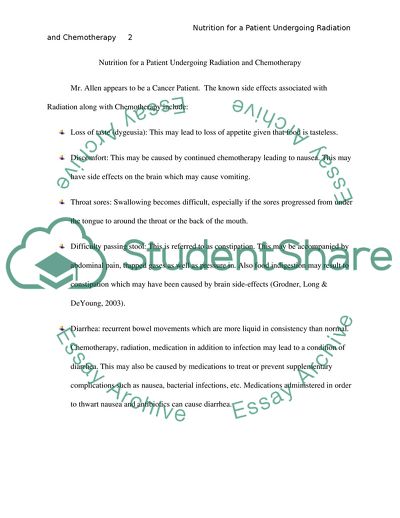Not Found (#404) - StudentShare. https://studentshare.org/medical-science/1758417-nutrition-for-a-patient-undergoing-radiation-and-chemotherapy
Not Found (#404) - StudentShare. https://studentshare.org/medical-science/1758417-nutrition-for-a-patient-undergoing-radiation-and-chemotherapy.


